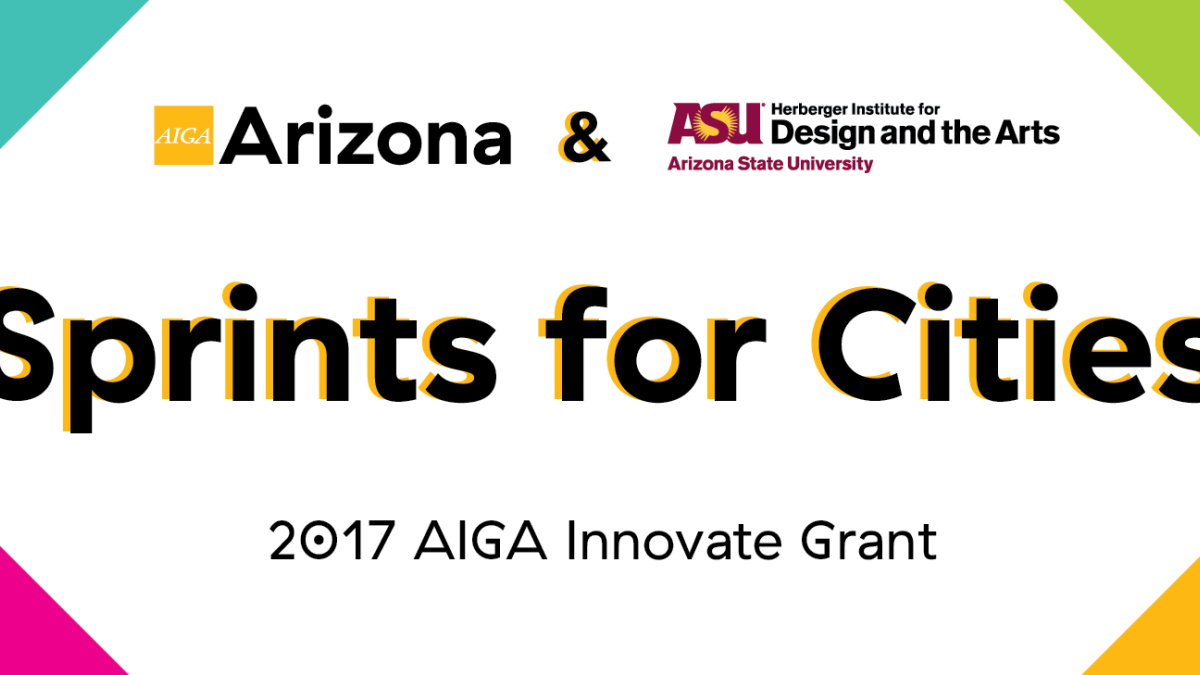Through a significant $50,000 AIGA Innovate Grant from and partnership with AIGA National, AIGA Arizona and The Design School at Arizona State University’s Herberger Institute for Design and the Arts will partner to start the new executive training program Sprints for Cities.
The idea first came into being last October, when Steven Tepper, dean of the Herberger Institute for Design and the Arts at Arizona State University, and Julie Anixter, AIGA executive director, spoke together about the future of design education at Phoenix Design Week. They championed the idea that the power of designer’s creative process should be unleashed to solve complex societal problems in cities.
AIGA Arizona President Kyle Larkin said, “Sprints for Cities will bring diverse groups of leaders into the same room to design solutions for problems/challenges facing their communities. It will train leaders throughout the AIGA network to go back to their communities and do work for the social good. Designers, in collaboration with city leaders, can be instrumental in solving any place-based problem. We intend to connect with and amplify the work that other groups, like Bloomberg Philanthropies Innovation Teams are doing as well.”
The grant will fund the creation of a curriculum for leading design problem-solving sprints, with expert training to be developed by experts at The Design School. ASU and the local AIGA chapter will work closely with city leaders to identify problems that need solving. The grant will fund a series of engagements, or "sprints," between designers, other creatives, entrepreneurs, community leaders and the city departments that lead on the problems in order to come up with solutions.
The sprints have two benefits — they help the city address unique solutions to key issues; and they create a community of design, business and community leaders who are trained in processes that create social good in society. Sprints will not only build capacity to use design for social good, but they will also introduce design methodologies to a range of city leaders and develop a strong network of individuals who understand the value of design and the assets that designers bring to problem solving.
Sprints for Cities is spearheaded by Tepper and Jason Schupbach, director of The Design School, with ASU and Liz Magura, Larkin, Kathy Morgan and Marissa Groom with AIGA Arizona and Anixter and Laetitia Wolf with AIGA National.
More Arts, humanities and education

ASU graduate education programs are again ranked among best
Arizona State University’s Mary Lou Fulton College for Teaching and Learning Innovation continues to be one of the best…
ASU FIDM students to see their designs on the runway at Uncertainty Fashion Showcase
Nola Hill is perfecting every stitch of her fashion design collection, which she started conceptualizing last summer.She is among…

ASU+GSV Summit brings experts together to discuss innovation in education
This week, Arizona State University President Michael Crow and other university leadership joined education and learning experts…


